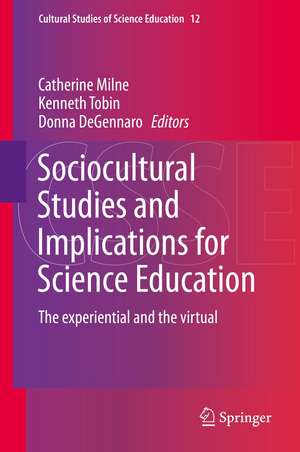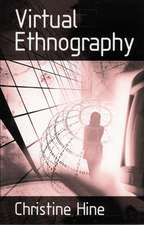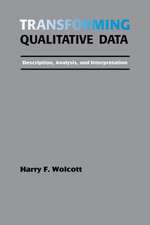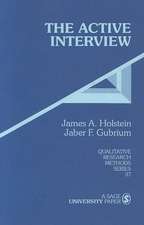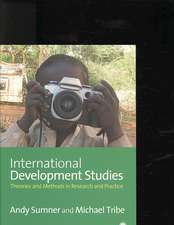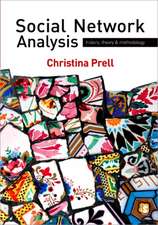Sociocultural Studies and Implications for Science Education: The experiential and the virtual: Cultural Studies of Science Education, cartea 12
Editat de Catherine Milne, Kenneth Tobin, Donna DeGennaroen Limba Engleză Hardback – 30 iul 2015
| Toate formatele și edițiile | Preț | Express |
|---|---|---|
| Paperback (1) | 563.78 lei 38-44 zile | |
| SPRINGER NETHERLANDS – 23 oct 2016 | 563.78 lei 38-44 zile | |
| Hardback (1) | 654.30 lei 3-5 săpt. | |
| SPRINGER NETHERLANDS – 30 iul 2015 | 654.30 lei 3-5 săpt. |
Din seria Cultural Studies of Science Education
- 18%
 Preț: 949.73 lei
Preț: 949.73 lei -
 Preț: 388.34 lei
Preț: 388.34 lei - 18%
 Preț: 784.30 lei
Preț: 784.30 lei - 15%
 Preț: 647.27 lei
Preț: 647.27 lei - 18%
 Preț: 910.10 lei
Preț: 910.10 lei - 15%
 Preț: 642.83 lei
Preț: 642.83 lei - 15%
 Preț: 646.62 lei
Preț: 646.62 lei - 18%
 Preț: 895.58 lei
Preț: 895.58 lei - 18%
 Preț: 731.10 lei
Preț: 731.10 lei - 18%
 Preț: 782.24 lei
Preț: 782.24 lei - 18%
 Preț: 949.10 lei
Preț: 949.10 lei - 15%
 Preț: 637.13 lei
Preț: 637.13 lei - 18%
 Preț: 1227.52 lei
Preț: 1227.52 lei - 15%
 Preț: 635.96 lei
Preț: 635.96 lei - 18%
 Preț: 949.10 lei
Preț: 949.10 lei - 15%
 Preț: 643.65 lei
Preț: 643.65 lei - 15%
 Preț: 645.28 lei
Preț: 645.28 lei - 15%
 Preț: 651.84 lei
Preț: 651.84 lei - 15%
 Preț: 663.79 lei
Preț: 663.79 lei
Preț: 654.30 lei
Preț vechi: 769.77 lei
-15% Nou
Puncte Express: 981
Preț estimativ în valută:
125.20€ • 131.07$ • 103.59£
125.20€ • 131.07$ • 103.59£
Carte disponibilă
Livrare economică 15-29 martie
Preluare comenzi: 021 569.72.76
Specificații
ISBN-13: 9789400742390
ISBN-10: 9400742398
Pagini: 398
Ilustrații: IX, 330 p. 110 illus., 12 illus. in color.
Dimensiuni: 155 x 235 x 20 mm
Greutate: 0.8 kg
Ediția:1st ed. 2015
Editura: SPRINGER NETHERLANDS
Colecția Springer
Seria Cultural Studies of Science Education
Locul publicării:Dordrecht, Netherlands
ISBN-10: 9400742398
Pagini: 398
Ilustrații: IX, 330 p. 110 illus., 12 illus. in color.
Dimensiuni: 155 x 235 x 20 mm
Greutate: 0.8 kg
Ediția:1st ed. 2015
Editura: SPRINGER NETHERLANDS
Colecția Springer
Seria Cultural Studies of Science Education
Locul publicării:Dordrecht, Netherlands
Public țintă
ResearchCuprins
Introduction, Catherine Milne.- Section 1: The Experiential in Education Research.- 1 The sociocultural turn in Science Education and its transformative potential, Kenneth Tobin.- 2 Multilectics and its methods, Gene Fellner.- 3 Heuristics for mindfulness in education and beyond, Malgorzata Powietrzynska.- 4 Studying secondary science student teaching experiences within a cohort community of practice: A multi-planar, multi-analysis sociocultural methodology, Jennifer Gallo-Fox.- 5 Video selection and microanalysis approaches in studies of Urban Science Education, Rowhea Elmesky.- 6 Equity, ethics and engagement: Principles for quality formative assessment in primary science classrooms, Bronwen Cowie.- 7 “And? Did we do nice things?” Children documenting their emerging inquiries in early science learning, Charles Max, Christina Siry, Martin Kracheel.- 8 Coteaching in the Penn STI: Evolution of fluent praxis, Cristobal Carambo.- 9 Science and English language learners: Creating opportunities to align teaching and learning with students’ needs, Gillian U. Bayne and Romil D. Amin.- 10 Being a science educator researcher: a personal narrative from a sociocultural perspective, Konstantinos Alexakos.- Section 2 – The Virtual and the Real in Education Research.- 11 Conceptualizing identity in Science Education research: Theoretical and methodological issues, Lilian Pozzer-Ardenghi Phoebe A. Jackson.- 12 A socio-culturally sensitive science curriculum: What does it have to do with our bodies? Giuliano Reis.- 13 Youth media productions: Deconstructing“difference” or reifying norms? Donna DeGennaro Tiffany L. Brown.- 14 “More things in heaven and earth Horatio” Seeing and believing in Second Life, Carolyne Ali-Khan.- 15 EcoJustice and vulnerability in virtual worlds, Michael P. Mueller.- 16 Beyond the actual: Some of the challenges of conducting sociocultural research in virtual contexts, Catherine Milne.
Textul de pe ultima copertă
The chapters included in this book address two major questions: what are some of the methodological and theoretical issues in sociocultural research in urban education and science education and what sort of questions do technological and virtual contexts raise for these types of research perspectives. The chapters build off Ken Tobin's personal history of sociocultural research in science education and as they do each chapter asks philosophical, sociological and/or methodological questions that inform our understanding of the challenges associated with conducting research in experiential and virtual contexts.
Caracteristici
Explores innovative ideas in sociocultural education research Has implications for methodology and analysis in science education Includes examples from virtual environments (e.g. Second Life)
